|
10/31/2016 Interview with Artist Noelle FioriAHC: Can you tell us a bit about your process, themes & inspirations? Noelle: My creative routine usually begins when I am not making art, I am driving, cleaning, showing, running... an idea comes to me. A feeling I have the urge to convey through collage. My practice has changed over time because I am not in grad school, so I am not generating as much as I used to. I tend to let an idea really simmer and build before I execute it. I am doing more works on paper again instead of collaging on wooden panels which is also a new adventure for me. I begin by looking through a magazine and letting the textures, colors, and photography wash over me. I begin ripping out pages that draw me in, and usually start with a body part that absorbs me. Whether that be a collarbone, or a gesture a woman is making, I begin cutting out the image with an X-Acto knife and slowly piecing it together with other images to construct my monster. I assemble this monster piece by piece and when I feel it is complete I begin to create the space they live in. AHC: What first drew you to art? Was there a specific moment in your life or turning point where it became clear to you that you were being called to create? Noelle: I was always an eccentric child who loved poetry and creating my own worlds with toys but it wasn't until I was in high school that I really began to use art as an outlet for creative expression. When I was making art time stopped in a sense. Drawing was the first medium I fell in love with…I love how immediate it is. My realistic drawing techniques definitely influence my collage work. I use my knowledge from drawing to show depth in my figures, to wrap certain curved elements around my monsters, and show a sense of movement in my work. I began working with collage in high school and then ventured into drawing, painting and eventually back to collage work. It is a medium I am really drawn to. AHC: Who are some of your artistic influences? Is there anyone outside of the art world who has had a huge impact on your work or who just generally inspires you, writers, filmmakers, musicians etc? Noelle: I identify most with Martha Rosler’s work; her Vital Statistics of a Citizen has really influenced my art. I also really identify with Cindy Sherman’s photography. There are many feminist writers and activists who have impacted my art such as Betty Friedan and Naomi Wolf. AHC: When you're working on a piece what's the environment like, do you work best with silence or with music on, what is your studio environment/vibe like? Noelle: Depending on my mood I work in silence or with music on. I like the space I am in to be really minimalist so I can focus exclusively on the piece I am creating. AHC: What is the first work of art you encountered that took your breath away? Noelle: I remember in high school learning about Berthe Morisot. She was the first female artist I was really exposed to and I remember being struck by the expressions of the women in her paintings. She captured a glimpse of their internal thoughts which took my breath away. The difference between the way she painted women and the way men did really struck a cord with me. In grad school the artist Wangechi Mutu's collages left me in awe as well. As in my own art, Mutu’s work deconstructs the female body, producing both extremely gruesome and appealing beings. She exaggerates the female body and equates the found female form with construct and artifice, something I also strive for in my work. AHC: Do you have any words of advice for young artists who are just starting out? Noelle: Keep generating large quantities of art and seek out feedback from other artists who inspire you. This process, although difficult, really develops you as an artist. My graduate program at the Art Institute of Boston required us to work with artist mentors, and their feedback pushed me as an artist and helped me decipher what I wanted to say through my work, and decide what was the best medium for my content. AHC: Do you have any upcoming exhibits or new projects you'd like to tell people about? Noelle: I am starting a new venture into works on paper so I am excited to see where this takes me. Also adjusting to being a new mother, along with artist, teacher, sister, daughter, wife will be new for me. Seeing how this new aspect of identity impacts my work will be interesting. 10/30/2016 Four Poems by Scott WozniakFuck You, Bukowski Fuck you Buk for filling my head with beautiful words written on a thirty-year bender. Fuck you for making me believe that poet and drunk are synonyms. Fuck you for the nights I spent with a gut full of cheap wine, and the incoherent garbage that was left on pages to mock me. Fuck you for making me believe the lie-- Its easy to write a great poem while in the throws of morning DT’s. Fuck you for being able to pull off being a poet WHILE drunk. When I’m drunk its apparent I’m nothing but a drunk who happens to own a typewriter. Happy to be a Feral Creature The man next to me was drinking Chardonnay while talking loudly about his MFA and how he taught English Lit at the local University. Inevitably, we started talking Literature from opposite sides of the fence. As we argued about poetry He exclaimed, “Any poet worth his salt MUST read Kafka!” I confessed, I myself, am a poet who has never read Kafka. He scoffed and sipped his drink. I took a shot of Jim Beam, looked him In the eye and said, “Fuck Kafka, any poet worth a shit MUST have, at one time, lost everything they hold dear, and had to fight for sanity.” Puzzled, he stared at me with the eyes of an animal who’d never seen the jungle. Hearts on Fire We are all combustible. Often falling victim to the fires that drive our fury. Prone to burn all we love. Happy to scorch ourselves in the process. Some of us are accustomed to walking through flames. Our hearts are wrapped in fire-retardant. Others get reduced to a pile of ash. Hard to Judge from Moment to Moment Some days Are nothing more Than a weeks’ worth Of commissary Gambled away Against A stacked Deck. Other days Are a pardon For the crimes You committed, And a C.O. Telling you, “Roll it up, You’re going Home.” Bio: Scott Wozniak is a poet/chaos enthusiast. His works are widely published both on line and in print. You can find his recent and future publications by following @sewozniak on Twitter. 10/29/2016 Interview with Singer-Songwriter Kym TuvimKym Tuvim's music carries its heart on its sleeve, in the best, truest sense of the term, forging a durable connection with the listener that feels almost immediate, it's the type of thing that stops you in your tracks, what is that song, who is that voice? Songs like “I will” and “Falling Rain” are among the most beautiful, haunting and ultimately painful songs in existence. And it isn't just the incredible lyricism or musicality of her records that stands out, it is the voice that delivers them, as each song feels like a type of arrival, a soul-gift in the darkest of nights. Many songwriters aim in the direction of the heart, but Kym takes aim from her own. There is a way of hugging where two people lean in from the heart, a heart connection, we so often hug with our hearts on opposite sides, it's nearly impossible and awkward to always embrace each other in this way, but when, or if we ever do, it becomes more than a way of greeting a person, it's a way of feeling each others presence from the very root of our person hood, and this, to me, is exactly what the music of Kym Tuvim does, leaning in from the heart, sharing presence, pain, perseverance, all of those things that make for a truly transformative and irreplaceable art. AHC: What has this journey, this life in music been like for you, both the highs and lows, and what life lessons do you feel you've picked up along the way? Kym: When I was in 2nd or 3rd grade, one of the questions on a school paper asked something about personal identity. I don't remember the exact wording of the question, but I answered: "I am a musician", though I probably didn't spell everything correctly! I wrote my first song when I was 9 because I felt sure that I could. It was the singular thing in my life, at that time, about which I felt confident and able. And, I'm so grateful that I had music and songwriting to lean into when I was growing up, and to have stayed on this path, even when I didn't feel so connected. Music has brought fabulously gifted and magical friends into my life, sometimes for a brief time, and sometimes for years. Music and songwriting helped me heal after my Mom passed away in 2001. It's given me my profession as a music teacher, and that is something I will always be profoundly grateful for. I never intended to be a teacher, but I've come to understand that it's a big part of why I'm here on the planet. The life lessons I've learned on my own path, I try to pass on to my students. Lessons like failing and starting again, over and over. Fall down 7 times, get back up 8, right? And, how important it is to do what you feel called to do, even if you don't feel like you know how to do it. Just start. Wing it. Learn more. Keep going. Don't stop because you are afraid to fail. AHC: What first drew you to music and what was your early musical environment like growing up? Were there pivotal songs for you then that just floored you the moment you heard them? Kym: I was very fortunate to grow up in a musical family. My Dad is a musician and my maternal Grandfather was a musician and bandleader. Some of my earliest memories are of sitting at the piano with my Dad or with my Grandpa making up music together. As a family, we always sang in the car on long road trips, and sometimes short ones, too. When I wanted to start to learn how to harmonize, I remember my Dad would sing with me and help me along. There was music playing in our house more often than not. I grew up listening to Count Basie and Duke Ellington, James Taylor and Simon & Garfunkle, Joni Mitchell and John Denver, and so much more. I loved everything, but I was always drawn more to singer/songwriters. Songs that blew my mind and changed my life? I think the first album that really hit me deeply was James Taylor's album "In The Pocket". That entire album floored me. Everything on that record, every song, seeped into me and inspired me to want to write songs. AHC: Do you remember the first song that you ever wrote? Kym: I remember making the decision to write the song. I was 9. I was listening to Golden Moments by James Taylor, and something clicked in my head. I thought, "I can do this. I want to do this." I marched myself out of my bedroom and down the hall to the piano. On the way, I shouted to my Mom who was making dinner in the kitchen, "I'm going to write a song!". She shouted something back like, "That's great, Honey!". I finished the song that day, but I have no memory of what it was about or how it sounded. AHC: Who are some of your musical inspirations? Kym: There are so many people whose music gave me the shivers, made me want to sing, made me want to write, made me want to go to my instruments and play. There are so many, but here are some highlights. From when I was an itty-bitty: James Taylor, Simon & Garfunkle, Seals & Crofts, The Doobie Brothers. From when I hit my pre-teens, teens & young adulthood: Peter Gabriel, Joni Mitchell, Rickie Lee Jones, Tori Amos. In recent years, these are some of the folks I turn back to time and time again for comfort and inspiration: Rufus Wainwright, Kelly Joe Phelps, Rose Cousins, Mathias Duplessy, Xavier Rudd, The Woods Brothers. AHC: What do you think makes for a good song, as you're writing and composing, is there a sudden moment when you know you've found the right mix, that perfect angle of light, so to speak? Kym: Yes, sometimes, I just know it's right. Years ago, I started writing a song in the back of a van while on tour. The song is called, 'Mystery', and it's on the last record I made. The first half of the song came out all together - music, lyrics, melody - all in one go. I had no idea what it was about, but I knew it was potent. I held onto the song, and kept coming back to it over about a 2 year period until I was able to wrap my head around the meaning and finish it. More recently, I wrote a song after breaking with a long time partner. I knew it was strong. When the bridge came out, all at once, fully articulating something that I hadn't even been consciously aware of, I broke down. However, there are also plenty of instances where I've written a song and thought it was not good enough. "In My Head", another song from my last record, and one of the most downloaded songs from that record, almost didn't make the cut because I thought it wasn't strong enough. Clearly, I was wrong about that. AHC: As a listener of music I find a lot of healing takes place, for me, through songs, and I wonder if, from a creators standpoint, it plays a similar role for you, as its author? Kym: Absolutely. For me, songwriting is often synonymous with catharsis. It's how I process what I'm going through. And, it is often a way to access the truths I've been burying unconsciously. That said, whether I've been digging deep into my own awareness or accessing universal knowledge, songwriting has helped me to survive the most difficult and painful experiences of my life. So, yes, it's healing. No doubt about it. AHC: One of my favorite lines in one of your songs is 'How do you get through without coming apart?' I haven't found an answer to this, but it's part of what is so potent and powerful about music, a posing of the unsolvable but indelibly true and hard facts of living, 'I can't feel anymore today, I can't think without something breaking' as you write and sing so beautifully, at its finest moments this is the gift music has to give us, like a hand on the shoulder you didn't expect to feel when you needed it most. To be able to create an effect, a feeling like this in others, in an audience, must be immensely rewarding on an emotional level, it's hard to put words to (and certainly the creating itself must come from its own share of pain) do you see songs as a form of rescue or psychic soul surgery? Kym: I wrote that song after my Mom died. For a while, I wanted to die, too. I was wrestling with the question of staying here on the planet. Trying to understand the point of sticking around. Writing that song broke me down further to help me come through to the other side. So, yes, I definitely see songs as a form of rescue. AHC: What are your favorite on-tour, on-the-road memories? Kym: There was one very long travel day where I started my day in New England, near The Berkshires, and I ended my day in Florida. When I left, it was snowing. I drove and drove. At one point, many hours later, I pulled over for gas in Georgia and opened the car door. The air hit me like a furnace blast. And, the sound of the insects humming was palpable. I remember feeling immensely grateful in that moment for the ability to be a musician and travel, and to be able to have such wonderful adventures. AHC: Do you have any words of advice for young musicians and singer-songwriters out there who are trying to find their voice and their way in this world? Kym: The first thought that comes to mind is this: keep writing and making music, no matter what. When I stopped touring regularly in 2008, I struggled with the reason why I should continue writing songs and making music, even though I had done so for the majority of my life. I got stuck in this question: What's the purpose if I'm not going to make a new record and play shows? To answer this question, I had to go back to when I was a kid, motivated to write songs solely because I felt compelled to. Doing so made me feel happy, accomplished, joyful, and brought me to a cathartic place. When trying to become a 'professional' something, I think that process can be confusing and exhausting for most people. So, my best advice would be to continually go back to your happy place. Make music for yourself. Write songs for yourself. Write and play because you enjoy the challenge and the growth, the kinetic push and pull of digging deep into something and coming through the other side. Write and play because you want to continue to grow as a person, as an artist, as a musician, as a songwriter. And, find people you dig and who dig what you're up to, both musicians and listeners. Build community, even if it's small. AHC: Do you have any new projects in motion you'd like to tell people about? Kym: I'm happy to say that I'll be starting a new recording this year. My last record, Nothing Sweet Nothing, came out in 2008. I played 3 cd release concerts, and then took a sabbatical to get healthy, lose weight and, basically, change my life from the ground up. In the 8 years since, I've written a lot of songs! I also lost about 130lbs, picked up a couple more instruments, and built a home recording studio. That's where I'll be starting the record, and finishing it with Evan Schiller at zulusound in Seattle, who helped me finish my last record. For more visit www.kymtuvim.com/home.html 10/28/2016 Two Poems by R. M. FrancisSam Said Sam says, I'm sick a the scabby 'ores, all of 'em, spreadin' as 'e splits 'is wallet again. Gorr'a be the big man, ay 'e? Collier counts coins outloud, does it down The Hope each drunk Friday – thass another six sheet this wik - one wench’ll always be around, agree to tek ‘im ‘ome for it. Sam says, 'e ay split a lip since 'e was sixteen an' they purr'im away for that. Always the big man, ay 'e? Collier cuts lips with fists, does it down The Hope each drunk Saturday – there was three on 'em, Tom, an' I wor stondin' for that. Four or five fellas’ll always be around The sink ‘oles of ‘is tales. Sam meks Sunday dinner, an’ we all goo ‘round, an’ nestle in ‘er spine, an’ ignore each creak of subsidence. Collier chokes tar tears that noose ‘im to bed each ‘angin’ Sunday – yo' never did finish Mom's cracks before 'er corked it - digs those pits alone. Imagist in Netherton So much depends upon This is Art, spraycanned on the redbrick shed of the MEC down in the maze of Sledmere estate. 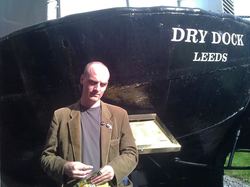 Bio: R. M. Francis is a poet from the Black Country, researching his PhD at the University of Wolverhampton. His chapbook, Transitions, was published by The Black Light Engine Room in 2015. Two further pamphlets, Orpheus (Lapwing Publications) and Transform (A Swift Exit Press) are due out soon. https://www.facebook.com/RMFrancisPoet/
Photo by Jim McGuire
Much has been written over the years about Carrie Newcomer, all I can really add is my own encounter with her work. A long time ago, back when there were still used record stores where you could spend hours combing through bins until you came up with some secret, sacred treasure, I stumbled across her album "My True Name." The music on that record transformed me, like a light in a dark attic, her songs revealed all of the nearly forgotten heirlooms of the soul, almost every line seemed like a call inward, and also outward; be true to you, be true to the world. Carrie once wrote "I believe that one of the finest gifts we give one another is our unhurried presence." I think the same could be said of her songs, they are a type of unhurried presence and the most precious gift that can ever be given; hope. "I'm well aware what people can bear when there is a reason for them to face it" she sings in "Nothing's Ever Wasted" and in fact I think that is the underlying soul of Carrie's work, Nothing is ever wasted, it's never too late and second chances have more room to move around in than you'd think. AHC: What has this journey, this life in music been like for you, the highs and the lows, and what life lessons do you feel you've picked up along the way? Carrie: That is a wide and wonderful question. I don't believe I could answer it well in a few sentences. It's been such a strange, fascinating, wonderful, surprising, heartbreaking, beautiful, still unfolding life in music. I don't think I could have creatively imagined all the places music would take me when I was starting out. AHC: What first drew you to music and what was your early musical environment like growing up? Were there pivotal songs for you then that just floored you the moment you heard them? Carrie: I didn't grow up in a musical family. I encountered music through the American public school system. The town I grew up in was home to several of the most prominent band instrument factories. So as a result the public schools had a wonderful music program. I started there. I'm a huge supporter of art and music being essential subjects. Later as a teenager I fell in love with the singing poets, the songwriters who were combining interesting, poetic and thought lyrics with music. I picked up a guitar and started immediately writing songs. But, I didn't go to college for music. My degree is in visual art. I think when I began college I wasn't ready to risk the thing I loved the most. But, I put myself through college playing in coffeehouses, restaurants, weddings, festivals, house parties and bars. Gosh I played everywhere. I think I played a few garage sales. After I finished school, music was calling and I decided to follow. I had no idea where it would take me. And, it's taken me places I could have never imagined at the time. All these years later, I'm still following. AHC: Do you remember the first song that you ever wrote? Carrie: I vaguely remember. I think it was something about love and a boy being killed in a car accident. Kind of my version of "Teen Angel." I was pretty shy and angsty then. AHC: Who are some of your musical inspirations? Carrie: I listen to all kinds of music. But I would have to say I still always come back to the singing poets. For example, Paul Simon continues to put out beautiful albums. His lyric writing is brilliant. Often my inspiration comes from literature and poetry. I'm drawn to poets where the natural world shows up in their work. Poets like Wendell Berry, Naomi Shyab Nye, Mary Oliver, Ranier Marie Rilke, and Rumi. In terms of my own process, my songs usually begin with my own poetry or essays. Then when I finally sit down to write the song I have already explored the topic and created some of the language I might use. AHC: What do you think makes for a good song, as you're writing and composing, is there a sudden moment when you know you've found the right mix, the perfect angle of light, so to speak? Carrie: The reason why I'm a songwriter is because I love the marriage of music and language. It's a whole heart, mind and body experience. The language and music are completely entwined. Everything the music is saying is backed up and taken further by the language. Everything the language is saying is backed up by the music. If a song is working, it says more than the words. I write regularly, some folks say I'm prolific, but really I'm just faithful. Writing is a practice, and perhaps my most consistent spiritual practice. To write you have to show up for your own life, you have to pay attention. I write the song I write today. What I mean by that is when I first started writing songs I thought I had to put the sum total of all my experience into each song. But now I know a good song is usually about one thing. I write a song today about this topic. Tomorrow I'll write another. I have a lot of songs in me. It takes some pressure off. This song may or may not be my masterpiece. But that's not the point. The point is I keep listening, showing up, writing it down. I've heard people call writing practicing the "mule work." But I think of it more as "dog work." Anyone who has a dog knows that they are so hard wired. A retriever is never happier than when it's brought you something. When I'm songwriting I'm completely in my own skin, doing this thing I feel made to do. And sometimes if I'm faithful, I find that elusive zone where I get totally immersed in the process and come up for air 2 hours later. Sometimes I can tell when a song is right. That is a satisfying feeling. But I've been surprised by songs as well. AHC: Do you consider music to be a type of healing art, the perfect vehicle through which to translate a feeling, a state of rupture, hope lost and regained? As a listener of music I have this impression, I wonder, as the artist, the creator, do you have this feeling about the power of song? Carrie: As a songwriter I'm always trying to capture in language and music the things we experience that have no words. I've often thought that to be an odd job description. But yes, for me songs are a beautiful container for human experience, a beautiful place to describe all the longing and loss, ache and awe of it. Often I'm described as having a spiritual current in my work. The reason for that is because I have a spiritual thread that runs through my life. If that quality were not present I'd be censoring something very important about how I experience my life and the world. But that being said, I very consciously write about that thread in a manner that is inclusive, that reaches to that shared human experience of longing or leaning into something, if not greater, perhaps larger than ourselves. In my experience, it is in the small and daily that we most often catch a glimpse of something whole and sacred in the world. I guess I'm one of a growing number of people who are choosing not to put the sacred in such a small container. I am often struck with wonder and gratitude at the power of a song. There are songs that make me cry, always at the same part no mater how many times I hear it. There are songs that heal and help in deep and comforting ways. There are songs that we feel in our bodies as they tap into something primal. People are very generous with me and will often tell me how a particular song has helped, healed or opened a new conversation. As a songwriter I send out my songs not knowing where they will land. I can only hope they land well and with my best intentions. And so I am always deeply grateful when someone takes the time to let me know that a song has landed well and safely in their hearts. What a fine and tender thing. AHC: What are your favorite on-tour, on-the-road memories? Carrie: That is a difficult question because after years of touring there are so many memories I really treasure. And, I treasure them for a variety of reasons. Being a traveling songwriter you see the world close up. So many interesting ecosystems and communities. There are people and their stories that I'll carry with me always. When I am traveling I experience the world so intensely, and so much happens in a relatively short amount of time. But when I get home, everything is pretty much the same. The only thing that has significantly changed is me. I have met so many beautiful, bewildering, extraordinary, ordinary people, and experienced so many different landscapes. I carry mental pictures of landing on an Alaskan glacier in crop duster style plane, weeping for the beauty of it, I remember walks in the desert and experiencing a northern boundary water silence so deep it seemed like a noun. I remember the pulse of several enormous cities and feeling the power of all those heartbeats around me. I remember small towns and an old clapboard church set out on a rocky coast. I remember the sound of prayer flags of Dharmsala, and a school of Kenyan children running across a field to sit at the feet of an elder. I remember a young woman on a train in Germany, a beautiful sleeping child in her arms. I remember so many things, but most of all I remember the music, all that sweet sweet ephemeral stuff I've sent into the air, letting it go and wishing it well. If you want one particular experience I remember performing on the southern tip of India in a home run by a poet for 200 women and girls who had been living on the street. I didn't know what to sing, and was at a loss for what might I offer to women that had lived and suffered in ways I couldn't imagine. At that point the women asked if they could sing for me. They sang "We Shall Overcome" in Hindi. I sang it back to them in English. And we went back and forth like this for a very long time. The song was one of struggle, hope, and affirmation. The song said, "We are not invisible people, hear us and know we are here and whole." AHC: Do you have any words of advice for young musicians and singer-songwriters out there who are trying to find their voice and their way in this world? Carrie: Something really good happened to my writing when I gave myself permission to sound like a midwesterner. What I mean by that is I learned my most powerful voice would always be my truest voice. My friend and songwriting colleague, Bill Harley, put it this way. "Carrie you don't want to be the best singer-songwriter. No, what you really want is to be the only Carrie Newcomer." Bill articulated something so important. The world needs your truest voice. It needs what you uniquely have to offer. Your most powerful songs will always be your truest songs. Also something good happened to my songs, and to my life in music, when I stopped just following music as framed by the music industry - but created my own frame based upon what I write about. I write songs but I write songs about something. It was that something that would lead me where the songs (and I) needed to go. AHC: Do you have any new projects in motion you'd like to tell people about? Carrie: I just released my 16th album called "The Beautiful Not Yet" with a companion book of poetry and essays called, "The Beautiful Not Yet: Poems, Essays and Lyrics." I'll be touring this album through the early winter. I'm working on completing a co written play called, "Betty's Diner: The Musical" and creating a music and spoken word work with Quaker author Parker J. Palmer called, 'What We Need Is Here: Hope Hard Times and The Human Possibility. For more information visit www.carrienewcomer.com/
-Courtney Marie Andrews
Courtney Marie Andrews' latest album 'Honest Life' is everything you'd hope most albums were, though seldom are, honest, bold, original, and utterly heartfelt, with songs that feel and sound as if they were crafted from out of the earth itself. Music from the root, where the stuff of life, of losing and getting back in equal measure, walks the line in these songs. It's not hard to see why she picks Lucinda and Townes as co-pilots of inspiration, she has some of that same honest fire burning in her music just as it has burned through theirs, like any good songwriter Courtney is a translator of the human condition, the highs and the lows and everything in between, all richly mapped out for fellow travelers on this latest, bold musical testament that is an 'Honest Life'. AHC: What has this journey, this life in music, so far, been like for you, the highs and the lows, and what life lessons do you feel you've picked up along the way? Courtney: I feel like life in music is a life of extremes. It is a life comprised of the highest of highs, and lowest of lows. The trick is balance, and not letting anything get to your head too much. It's a life of inconsistencies, and you have to be okay with change. The hardest lesson I've had to learn, and am constantly striving to learn, is balance, in a very exciting, but chaotic life. AHC: What first drew you to music and what was your early musical environment like growing up? Were there pivotal songs for you then that just floored you the moment you heard them? Courtney: None of my family members played music. My mother always sang in the car though, and I always enjoyed singing along. When I was first introduced to musicals as a child, that's all I wanted to hear. I haven't stopped singing since. As a child, the song "Tomorrow" from Annie the Orphan touched me. Even as a kid I could understand the emotional significance of those lines. "Just thinkin' about tomorrow Clears away the cobwebs and the sorrow 'til there's none." I mean, wow! It's so hopeful and earnest. Songs like that struck a chord in me very deeply during my childhood. AHC: Do you remember the first song that you ever wrote? Courtney: Growing up I wrote melodies with words all the time. But the first song I ever wrote with a guitar in hand remains very firm in my mind. I took a turn from musicals as a kid, and straight into punk. I could never relate with the theater kids once we were in highschool. Punks had an edge, and a passion that I truly admired. Alas, my first song was a feminist punk song titled, "Loser." AHC: Who are some of your musical inspirations? Are there certain songs or albums that you couldn't live without? Courtney: They're always changing, but here are some life-changing albums that are written in my soul: Bob Dylan- Blood on the Tracks Townes Van Zandt- Flyin' Shoes Lucinda Williams - Car Wheels on a Gravel Road Aretha Franklin - Greatest Hits Joni Mitchell - Blue Tom Waits - Mule Variations AHC: What do you think makes for a good song, as you're writing and composing, is there a sudden moment when you know you've found the right mix, that perfect angle of light, so to speak? Courtney: When I was younger, I feel that I let a lot of bad lines slide, and at a certain point, I'd sort of settle with songs. Now that I'm older and have studied the song craft of the greats, I won't let those little things slide anymore. If something doesn't feel right, or make sense lyrically, I'll fix it, or throw it away. I revise songs more, and switch words around to make them flow better. A good song to me, is one of heart and mind. AHC: Do you consider music to be a type of healing art, the perfect vehicle through which to translate a feeling, a state of rupture, hope lost and regained? As a listener of music I have this impression, I wonder, as the artist, the creator, do you have this feeling about the transformative power of song? Does the writing and creating of the song save you in the kinds of ways that it saves us, the listener? Courtney: Absolutely. I've always called music my "cheap therapist." It doesn't cost much to find a song that you can relate to. These days, it's free! Music is a constant in all our hearts, and in a world that is changing very quickly. It'll always be there for those in need. AHC: In a world that is moving faster and faster, for better or worse, I think that really good, tried and true music helps orient us to our times, slows us down and brings us back to ourselves, folk music is such a great example of this. When you set out to write and compose an album of songs, how much does 'where the world is' in its current moment, culturally, politically, otherwise, influence the kinds of stories you set out to tell? Courtney: Those elements absolutely affect me. Traditionally, folk music was a voice for the people. I still hold those values, and hope to speak out to people in and about a world that they are familiar with. However, I feel that the biggest obstacle as a writer, is to write a song that politically and culturally transcends time. AHC: What are your favorite on-tour, on-the-road memories? Courtney: Too many to count. Honestly, most tour stories are giant inside jokes that don't translate well. I'm always telling them at my shows though, if the mood strikes. AHC: What would be your dream gig, if you were asked to go on tour and open up for one of your musical heroes or heroines. Courtney: Dead or alive? Dead: Townes Alive: Lucinda AHC: Do you have any words of advice for other musicians and singer-songwriters out there who are trying to find their voice and their way in this world? Courtney: All I can say, is do it. Turn off your TV, computer, and phone, and write. Never settle. Always strive for more. If you love your work enough, it'll eventually start to love you back. AHC: Do you have any new projects in motion you'd like to tell people about? Courtney: I'll be touring throughout 2017, and writing songs. Lucky lady. For more information visit www.courtneymarieandrews.com/ 10/26/2016 Three Poems by Christopher HopkinsThe Last Time The Ground Will Give The day light has aged. Time has been called, by the nature of things. The sky did build its temper, and howled in breaking. Earths firm to clay, idle under nail and a heavy sun. The silk heads of the wheat were taken in, and the straw ends left, waiting to be turned. Tiger chars stripped crates arrived, stacked by the heavy squat limbs, waiting for the hired hands to come, rose halves still bleaching in cross winds. All that vigour of the term, soaked up in the flesh and grain. I hear the share, won't break the earth this year. No dragging boards, no folds to air, no crows to pick the worms. The rumours heard of silver bones, stilted and hammock strung, appeared from horizon stills. Standing guard over wasp toned diggers, their blue diesel genies follow, and the crows, who don't care where the worms come from. Tank hard and shovel hands turn up the downs, to the blue moon paper plans. The authentic, made a desire, a manageable one, for brass letter boxes and the furniture overtures that come. Blossom scent from washing lines, and greenhouse fruits that rot on the vine. Technomediacid the electric fog keeps me from sleep my head among the clouds half truths in the half light holding hands with the zeros and ones staring down an electron gun Date at the seafront A hundred thousand smashing plates. That’s how it sounded when the waves came over. The noise, it didn't stop. The sea and the sky both a churned up grey, white foam manes on the fold. You held my hand. Icicle fingers around mine. You kissed me and I felt your cold nose. I liked your bobble hat. The sand drifts on the promenade whipped up, and some of it got in our mouths. It danced around, around our feet, and puffed out our coats and chests. Us careless little devils. Bio: Christopher Hopkins, was born and raised in Neath South Wales, surrounded by machines and mountains, until he moved to Oxford in his early twenties. He currently resides in Canterbury and works for the NHS. Chris, who claims poetry has been "my ladder out of some dark places" has had poems published in Rust & Moth Magazine, Tuck Magazine, the online literary journal 1947, Transcendent Zero Press and Duane's PoeTree. Two of his early e-book pamphlets "Imagination is my Gun" and "Exit From a Moving Car" are available on Amazon.
photo © 2012 Ben Bernhardt
“Music is my channel of authenticity. I know I'd only be telling half the truth without it” writes Tracy Grammer. Her music and her life story, (it's hard to separate the two,) is the stuff of perseverance, of loss and reclamation, both anchor and drifting vessel in the face of the unexpected, having suddenly lost her musical partner Dave Carter so early in life, she has since continued to both honor his legacy and to create her own, and it's the “creating of her own” that she talks about here. What shines through her words is the hard fought but well-worth-the-fighting wisdom of one of the most enduring, irreplaceable voices in American folk music. Most of us know from personal experience that music can heal, but it can also teach and guide us, show us the way or one of the many ways, like a tour guide of the soul, such is the music, the life and the poetry of Tracy Grammer. AHC: Do you consider music to be a type of healing art, the perfect vehicle through which to translate a feeling, a state of rupture, hope lost and regained? As a listener of music I have this impression, I wonder, as the artist, the creator, do you have this feeling about the transformative power of song? Tracy: Absolutely. As a songwriter and musician, I am always in awe of the power of song to heal and transform us. How does it work? The transformation happens on two levels. First, there is a burst of pure energy and raw emotion. It could be something joyful or tragic, something curious or topical. But the first transformation is going to be from that pure internal energy into music, with the writer as conduit, channel, and composer. If it never went any further than this, and the song was never shared with an audience, the song would still have healing potential. Getting a song out is a cathartic process, and there’s much to be learned if a writer can get out of his or her own way and trust what comes to be meaningful, true, and wise. It usually is. The second level of transformation is what you’re talking about — the effect on the listener. No matter what kind of song it is — happy, silly, angry, blue — if it feels true and relatable, it holds great medicine. The medicine can come from the content of the song in the case where, for instance, a solution is revealed, or hope is restored. But mostly, I think it comes from something more basic: the feeling that someone has articulated what we could not, and we are no longer alone. AHC: What has this journey, this life in music been like for you, the highs and the lows, and what life lessons do you feel you've picked up along the way? Tracy: Well, my life in music has been marked by joy, fear, sorrow, adventure, international travel, feast AND famine, and the love of many people who helped me along the way. It started with Dad playing guitar in the evenings, and the family singing along to favorite 8-tracks: John Denver, Willie Nelson, Neil Diamond, Charley Pride, and Jim Ed Brown, to name a few. Then there were two ladies named Jan on Jutewood Street. One gave me a violin, the other gave me lessons, and this kickstarted my string career. I sang in elementary school musicals, then played in local and regional orchestras through high school. Neighborhood kids remember hearing me humming to myself as I walked, or singing Pat Benatar and Olivia Newton-John at home, full volume, with the bedroom window open. Fair to say the music was pretty much always in me. I joined Dave Carter’s band in 1996 and felt like I met my soulmate in song. Our duo broke off from the band around 1997 and was swept onto the national stage in a hot hurry. Looking back, I think it’s because he just didn’t have much time here. Dave died in 2002, a heart attack in our hotel room. By then, we’d played most major festivals, had recorded three albums, and had toured with Joan Baez. For all that, though, I had never played a solo show. It took everything I had — and I do mean everything — to get back on the road and become the performer I am today. Thank God for Donny Wright and Jim Henry, both of whom accompanied me in those rough early “new” duo shows. Looking back, it’s a little hard to believe I got through that time. But of course I did. It’s what you do. You push on. What I told everyone then remains true now: “I do it for love.” And the day this stops being true is the day I'll quit. What have I learned? That Life is shorter and longer than I thought it’d be. That there’s always more to learn about playing, singing, and writing. That you don’t have to be famous to change the course of someone’s life with your art. That even though I *can* drive 3,100 miles in three days, it doesn’t mean I should. That it’s better to travel alone than with the wrong company. That the size of the audience does not matter. Connect with one, and you’ve done your job. That a sweet potato and some steamed greens are the perfect pre-show meal. That I never want to be in such a hurry that I don’t have time to pull over and enjoy what’s happening on the side of the road — a field of sunflowers, that first view of the ocean, a small town carnival, the great redwoods, for instance. That money makes things easier but it’s not everything. Water is everything. Woods are everything. Critters are sacred. The stars are everything. And home is everywhere. AHC: What first drew you to music and what was your early musical environment like growing up? Were there pivotal songs for you then that just floored you the moment you heard them? Tracy: My dad played guitars and was my first singing partner. We’d get the neighborhood kids together and open up the songbooks and have ourselves a little hoot in the early evenings. Happy memory in a sometimes volatile household. I got a violin at age 9 and spent hours in my room either playing or singing along with my parents’ 8-tracks and LPs. We weren’t a Bob Dylan/Joan Baez family. We spun Beach Boys, Jan & Dean, Lynn Anderson, and The Monkees on the turntable, along with lots of country — Oakridge Boys, Bellamy Brothers, Tanya Tucker, Johnny Cash, Statler Brothers, Don Williams, Hank Williams, Willie & Merle. Pivotal songs, as a kid? BJ Thomas “Raindrops.” Tanya Tucker “Delta Dawn.” Willie & Merle “Pancho & Lefty” (which I perform). Olivia Newton-John’s part on John Denver’s “Fly Away.” “If I Could Talk to the Animals” from my jewelry box. “I Never Promised You a Rose Garden” used to scare the sh*t out of me! Look before you leap / Still waters run deep / And there won’t always be someone there to pull you out… As a kid I found this totally ominous for some reason! Later songs that wowed me (in no order): Mary Chapin Carpenter: “It Was Only a Dream” Kate Bush “Experiment IV” Shawn Colvin “Shotgun Down the Avalanche” Sugar Hill Gang “Rapper’s Delight” Elvis Presley “In the Ghetto” Queen “Bohemian Rhapsody" And most of Dave Carter’s catalog, though “Gun-Metal Eyes” was the first. AHC: Do you remember the first song that you ever wrote? Tracy: Yes. Not particularly strong. But I’d gotten a four-track and added some tupperware percussion along with harmony, which made the process fun. I guess I was always something of a producer. AHC: Who are some of your musical inspirations? Tracy: This list changes like the weather. Longstanding: Mary Chapin Carpenter. Bach. Suzanne Vega. Shawn Colvin. Gilbert & Sullivan. And of course Dave Carter. AHC: What do you think makes for a good song, as you're writing and composing, is there a sudden moment when you know you've found the right mix, that perfect angle of light, so to speak? Tracy: If it makes me cry, I’ve hit on something for sure. But sometimes, I just write write write until it feels done and then when I perform it, that’s the real test. I can tell instantly whether the song is worthy or has missed the mark once it’s exposed to the light of audience scrutiny, and it really doesn’t matter what the audience says. *I* know. I can feel what’s not true. AHC: What are your favorite on-tour, on-the-road memories? Tracy: That afternoon we were driving on a two-lane outside Kauffman, Texas when Dave shook up a Chocolate Soldier and it exploded all over the inside of the rental car. That moment when I took the stage at Falcon Ridge Folk Festival after Dave died and 10,000 people stood and cheered, and then wept with me, for five solid minutes. Singing “Gypsy Rose” in a tiny, dark club in Hiroshima, with Miyuki Kahler and her daughter Karen adding beautiful harmonies behind me. That moment, after my first show with Jim Henry, when I asked him whether he’d had a good time, and he said, most emphatically, “No!” (13 years later, we still play together.) When my grandma came to see me sing with Joan Baez. And really, that whole Baez experience. I could go on and on. Leading my first songwriting workshop at Camp Ned in 2015, and hiking to the Continental Divide the Monday after. What a one-two punch of greatness. That’s how you do it, how you make a life and a LIVING on the road. AHC: Could you talk about your involvement with the project RealWomenRealSongs? Tracy: Cary Cooper invited 21 women all across the US to write a song a week for 2014. Cary provided prompts and we posted our performances of these fresh, new, in some cases unfinished, songs to a dedicated YouTube channel, which is still active. I was hesitant to get involved because even though I had hundreds of bits and pieces, I didn’t have a history of actually finishing songs. In fact, at that time, I had only finished one. “The Verdant Mile” was recorded ten years prior in response to my grief over losing Dave. That was it. My one song. Also, I was just scared. I can’t write like Dave Carter. Nobody can. And nobody should. But back then, I was so worried about being compared to him, worried about falling short of some impossible standard I’d set for myself, worried about letting people down, that I was almost too paralyzed to start. But I did it anyway. I went through a pretty major life upheaval in May of that year and ended up moving from Pennsylvania back to Massachusetts. It was harder to write songs after that. I was just too sad and out of sorts. But I managed to log 17 songs total, which was great considering where I started. :) Prior to RWRS, I had sung Dave Carter’s songs almost exclusively. I’m grateful Cary pushed me to participate because singing my own songs and sharing my written voice has changed my life for the better. And it’s changed others’ lives, too! I recently heard that one of my songs helped heal a years-long rift between a father and his daughter just before that father passed away. We were talking about medicine — there it is. I may not be the master of myth, poetry, and craft that Dave was, but I have been journaling since I was 9 and I know how to dig down to the truth. When the work is honest, it will connect. AHC: In a world that is moving faster and faster, for better or worse, I think that really good, tried and true music helps orient us to our times, slows us down and brings us back to ourselves, folk music is a great example of this. When you set out to write an album of songs, how much does 'where the world is' in its current moment, culturally, politically, otherwise, influence the kinds of stories you set out to tell? Tracy: I don’t feel qualified to speak to the weather of the world. I don’t try to make big statements about the times we’re living in. And I try, at every turn, to avoid absolutes because I have learned there really aren’t any. I decided a long time ago that the world is simply too big for me. So I focus on the world inside my heart, and the one just outside my proverbial door. I speak to my experience because that is all I really know to be true. AHC: Do you have any words of advice for young musicians and singer-songwriters out there who are trying to find their voice and their way in this world? Tracy: Be humble. You meet the same people on the way up as you do on the way down. Be curious and pay attention. The world is full of stories that want telling. Say it the way you say it. We each have our own quirky languaging. Use yours. Eat healthy. Sleep enough. Exercise. Drink water. Get your face in the sun. Repeat. Have faith. If you show up armed with the truth, you’ll connect. There is an audience for everyone. Don’t worry about what you think the world needs from you. There’s no controlling the response to art, trends are like tides. Stay true to You and you will prevail. Keep working. Make it fun. Get lost, take side trips, write outside your genre, collaborate with strangers. You never know when sparks will fly. AHC: Do you have any new projects in motion you'd like to tell people about? Tracy: I’ll be making an album this winter for release in early 2017, and it will include at least four of the RWRS songs. I’ve been working on a memoir about my time with Dave Carter and have begun reading drafts in a new performance format I call words+music. Readings are interspersed with songs. The show has a theatrical flair and a living room feel and is not only for fans of folk music — the stories, which touch on issues like transgender identity, courage, grief, bad British accents, and road life, appeal to people navigating various thresholds and transitions. words+music dates are marked on my tour calendar at www.tracygrammer.com/ 10/24/2016 Two Poems by James PrenattBleach 1 People run out of chances. There’s a scapegoat for everybody, but goddamn it, how a lover with a leather jacket, a rarely seen smile and a penchant for doling out compliments to pissed off women can get his way too quick. Your body has forgotten its need for him. You went from how-could-anything-feel-this-good to I-never-want-to-change-anyway to I never want this to end,. Your body has remembered its need for his drug of choice and how he shares it and how it makes you both say “You’re all I want, you’re all I need.” How his lust seemed to thrust up your nose with such a rush and no buildup and his sex was good because that dope-like cock could make you walk through fire. Time to grow up. It was the wrong crowd and your face that was too bright for anyone to love. He tells you it’s easier to hate than love. It’s all directed in the wrong spot, wrong people, most of all you in fact, too good to be real, told you you had your time to be a kid and we’re sorry, I’ll take it back. You earned it. You earned him. It was something to do when someone else was doing it and now you need it, please, you need it. He smelled like horses and you wanted someone to carry you for a while. How you love life when you do it, how you can do things without taking a deep breath to slow the unwanted hummingbird heartbeat leaving the house gives you, how you share it, baby, it’s better than anything. 2 We’ll die young once we run out. We’ll be like Kurt, The Great White American Junkie. We’ll do it together, he says, live normal again. We’ll save up money and I won’t be such an entitled piece of shit. There’s happiness out there, beyond this dreamcage, real happiness, you know? We’ll find pleasure in the simple things again: hiking, sunsets, reading on a cool day and blasting music during the summer with the windows down like we’re sixteen. I could look my mom in the eyes back then. My hands sweat when that boy, he was my first, would hold my hand. He gave me jewelry I liked. I learned something new every day, that’s what I liked about school. I read when I was supposed to, studied when I was supposed to, and woke up and went to bed and work when I was supposed to. Malls and sneaking into R-rated movies, a black and a white dog every day at the door, ice cream on a hot day, oh, how we owned the world, how we ran through traffic, how we said no and no and no to our parents until they weren’t real anymore. Do you remember what sixteen was like? Dreams in Utero Last night I dreamt I loved him like you loved him. I knew what it was to incubate, to teach speech, to feel the echo of his first words in my head, to know the imprint of his DNA in my brain. I felt his heartburn hair in my chest. When he cried, I cried. When he moved, I felt him move. I dressed him in his sleep. I dressed him in utero. As we wake, the rain comes down grey and humid. We could swim through the air this morning. Give me the stethoscope so I can listen to your heart, record for my sound machine at night. The hum of the air conditioner. The rattle of his restless sleep in the next room. This blue light cast upon the earth— the blanket that covers your body. The music of your breath as I wake you up. Unlike most things, I don’t need this to be better than the first time because the first time, unlike expected didn’t realize what it was. Last night I dreamt he was my reflection. His eyes— his complexion were my own, but this dream was the last. Bio: James Prenatt lives in Baltimore where he spends his time being kinky and occasionally paying rent. He graduated from Towson University with a degree in English and he currently interns at publishing company, Brickhouse Books. His work has appeared in Five2One, 34th Parallel, and Cactus Heart. 10/23/2016 Interview with Singer-Songwriter Becca Roth
Becca Roth
AHC: What first drew you to music and what was your early musical environment like growing up? Were there pivotal songs for you then that just floored you the moment you heard them? Becca: I was first drawn to music through growing up singing in Church, as well as from repeatedly watching Disney's "The Little Mermaid". I feel like there is some sort of balance between those two things that has created my passion for music. I only knew Christian music for the first part of my life...and when I started listening to pop music on the radio, as well as musical theater, everything changed. I specifically remember hearing "Unwritten" by Natasha Beddingfield and being very inspired. That song will always be great. AHC: Do you remember the first song that you ever wrote? Becca: Yes. It was called "Free". I wrote it after I picked up the guitar around 10 or 11 years old. The lyrics included, "I'm free, free as a bird, free as the horses running on the beach". AHC: Who are some of your musical inspirations? Which musicians have you learned the most from? Becca: Some of my musical inspirations include; Alanis Morissette, Lady Gaga, & Daughter. All very different artists. AHC: You've credited your professors at Berklee College of Music for having helped you to find your voice, what are some of the profound lessons/advice you walked away with from your time there? Becca: There are several stories I could answer this question with. I had about 4 or 5 professors at Berklee in particular who really shaped me as an artist and as a person. I have a note from my Songwriting teacher, Scarlet Keys that is on a shelf in my room. The last sentence says, "Remember, there is no perfect, and you are amazing". Speaking to my tendency to be a perfectionist. AHC: What do you think makes for a good song, as you're writing and composing, is there a sudden moment when you know you've found the right mix, that perfect angle of light, so to speak? Becca: There are so many types of songs, and so many ways to make music. For me, the only thing that matters is how much feeling has been put into it. AHC: How has your music evolved since you first began playing? Becca: My music has evolved in as many ways as I've evolved as a person. I'm a better guitarist, and vocalist now, and a better songwriter..but that's only because of experience and time. AHC: Do you consider music to be a type of healing art, the perfect vehicle through which to translate a feeling, a state of rupture, hope lost and regained? Does the writing and creating of the song save you in the kinds of ways that it saves us, the listener? Becca: Absolutely. Music is therapy to me. Alanis Morissette describes music as a cathartic process, but not necessarily a healing one until it is shared. AHC: What are your fondest musical memories? In your house? In your neighborhood or town? On-tour, on-the-road? Becca: I think that my best musical memories are the ones that happened last week when I played a show with my band. I have a very luminous feeling that the experiences I have had in the past don't compare to the ones that are coming in the future. I truly believe that each show I play is better, and more enjoyable than the last. AHC: What would be your dream gig, if you were asked to go on tour and open up for one of your musical heroes or heroines? Becca: Perhaps playing for one of my musical inspirations as listed previously; Alanis Morissette, Lady Gaga, or Daughter. AHC: Could you talk some about your new EP Unstable? What is the inspiration behind the title and what are some of the guiding themes, thematically, of this album? Becca: I am very proud and relieved to finally be releasing this EP. The title is inspired by my song, "Unstable", which I wrote after a particularly emotional show that I played in Boston. I felt like I must be crazy for feeling all the things I felt, and the only way I could make it better was to write a song about it. The word "Unstable" describes how different of a story each song tells in this EP. For more information visit beccaroth.bandcamp.com/ www.beccarothmusic.com/ |
AuthorWrite something about yourself. No need to be fancy, just an overview. Archives
April 2024
Categories |
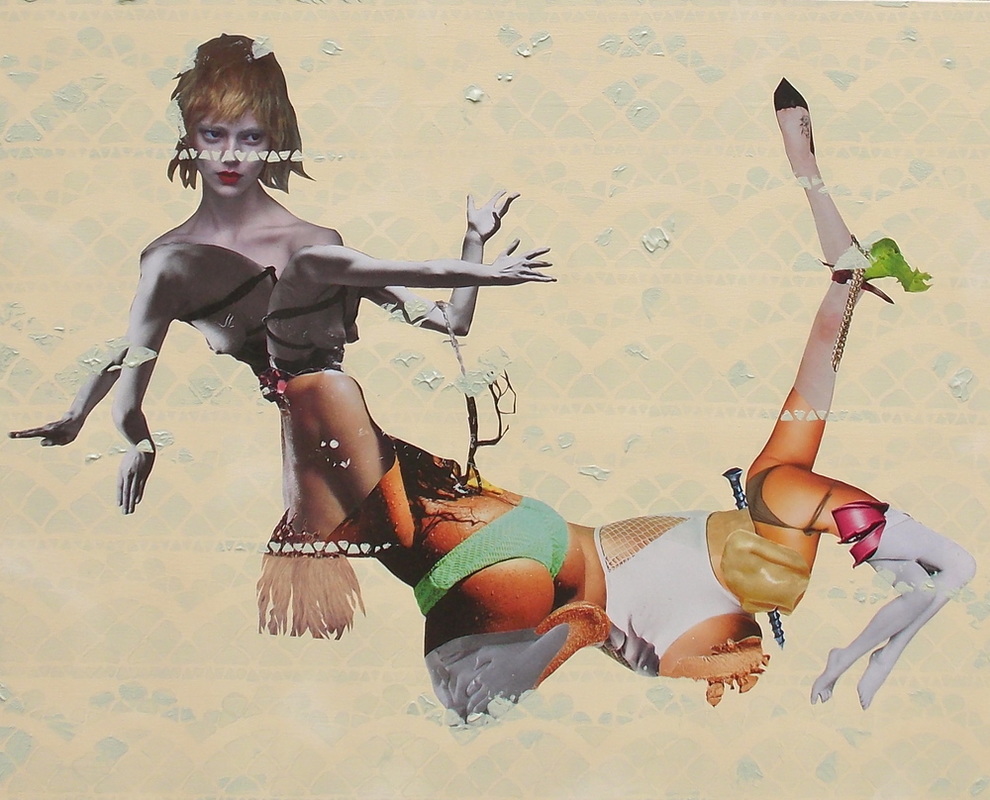
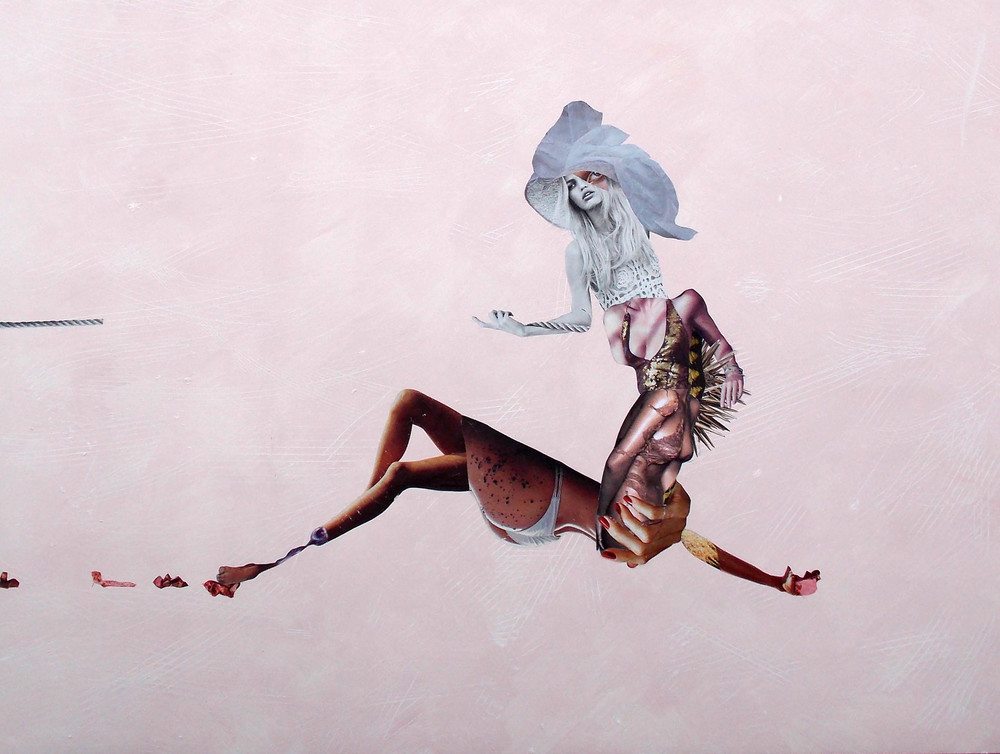
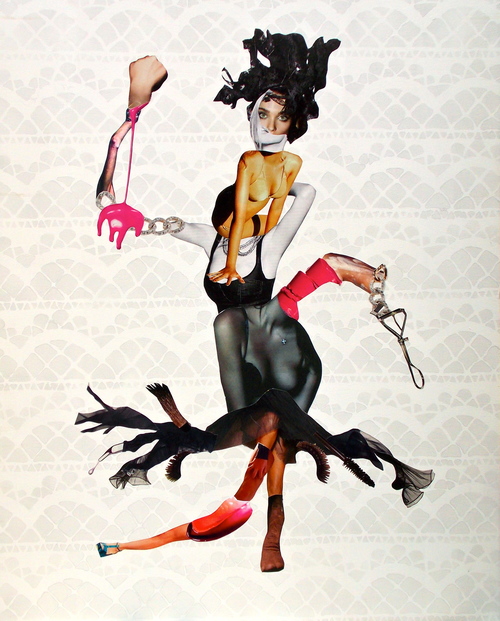
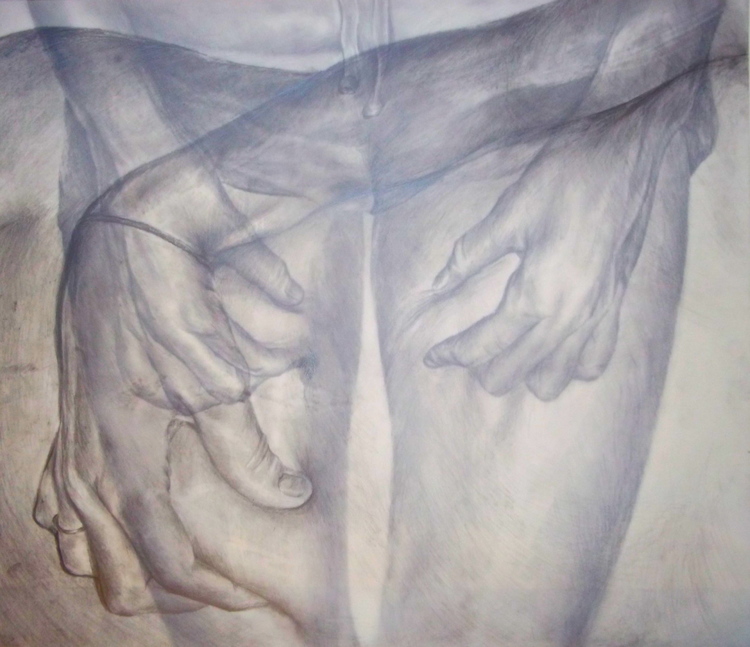
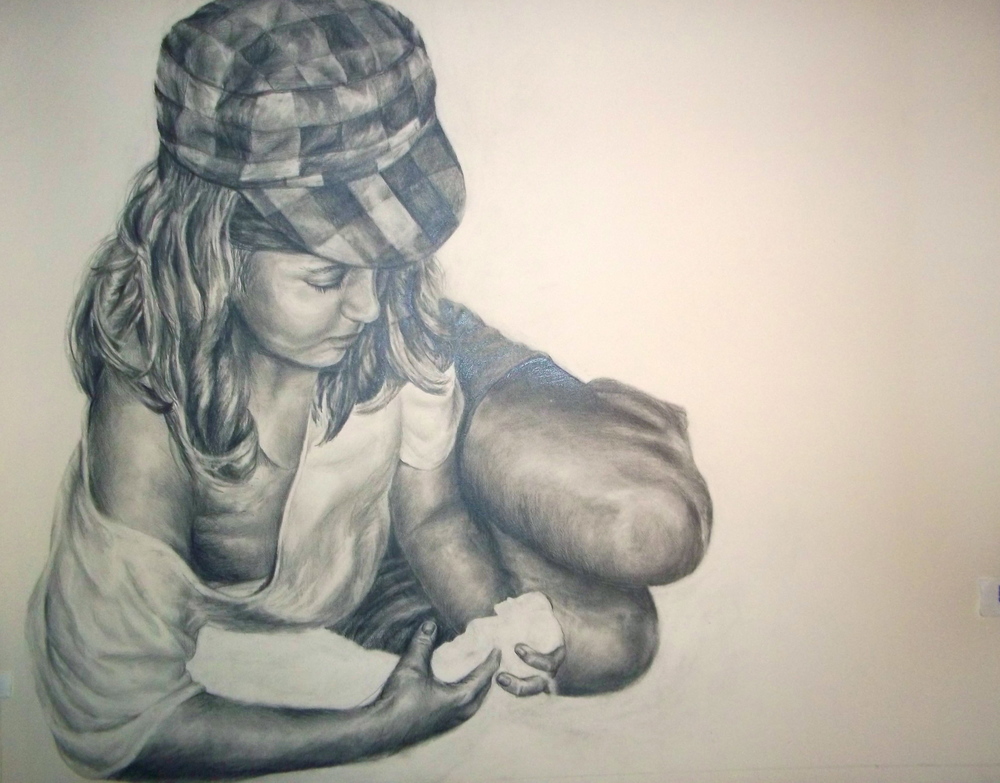
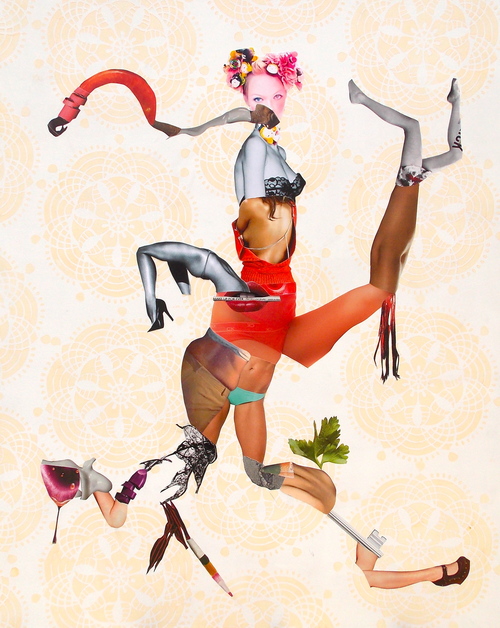
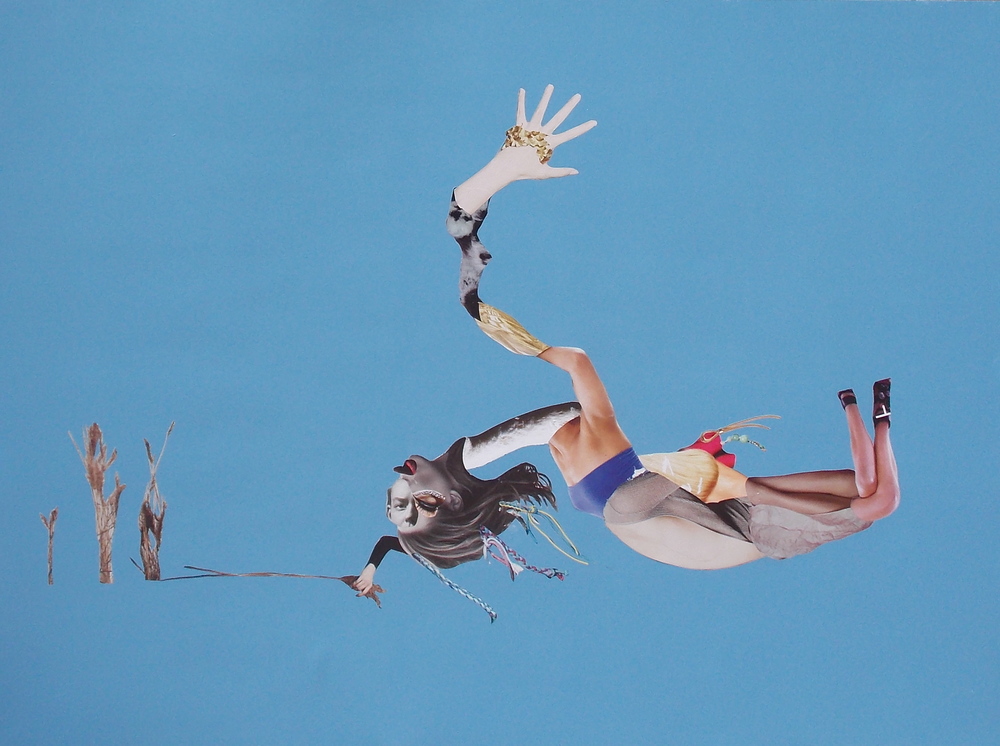
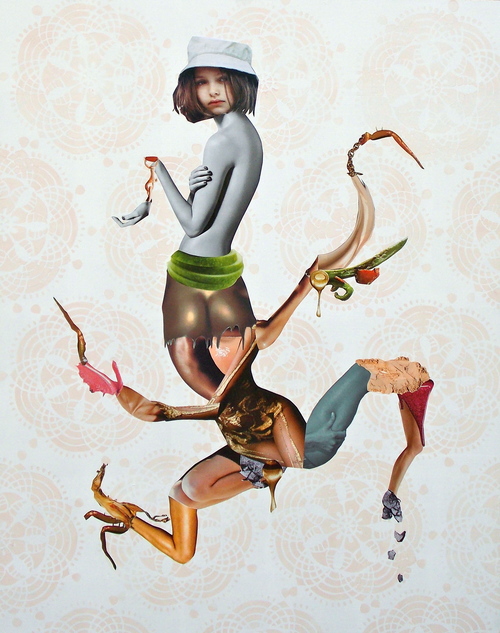
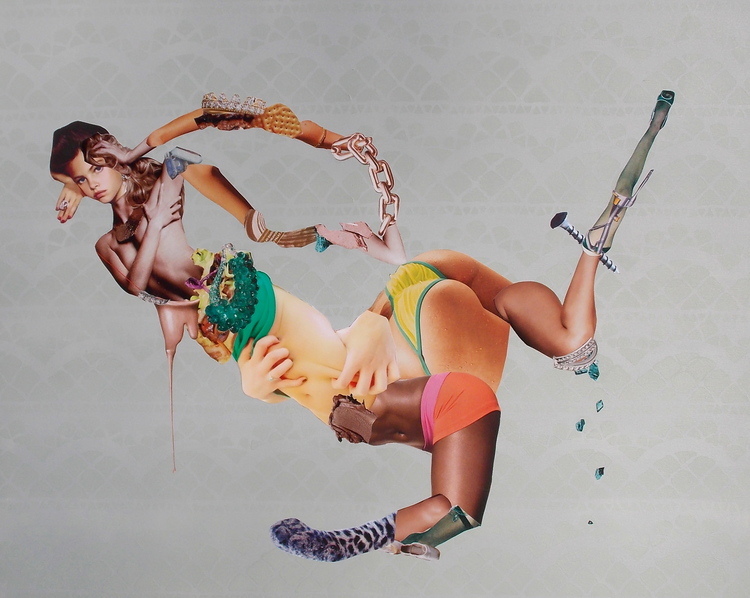
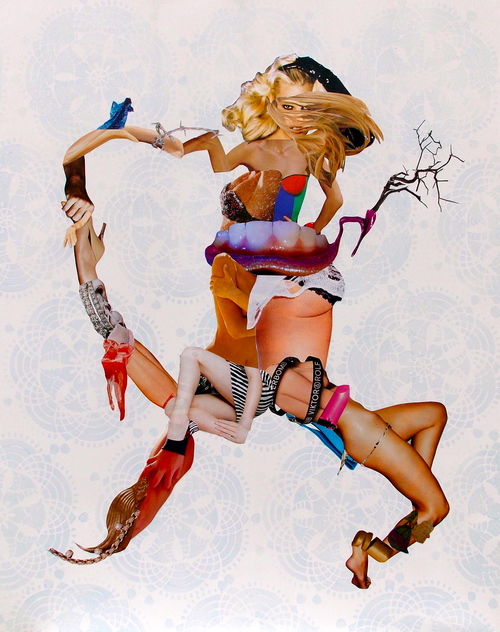
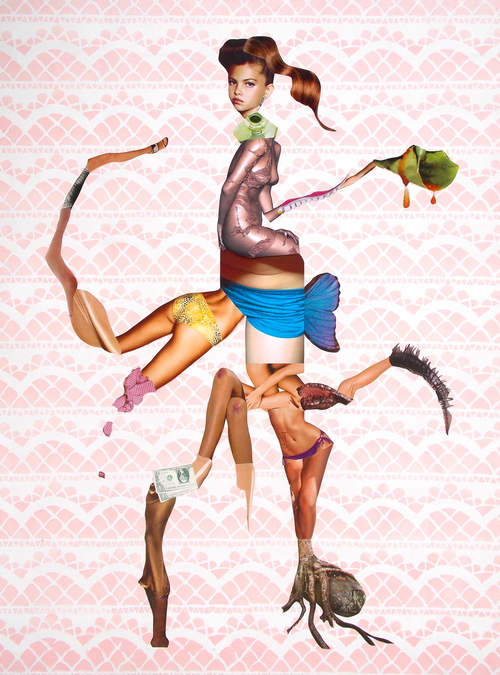
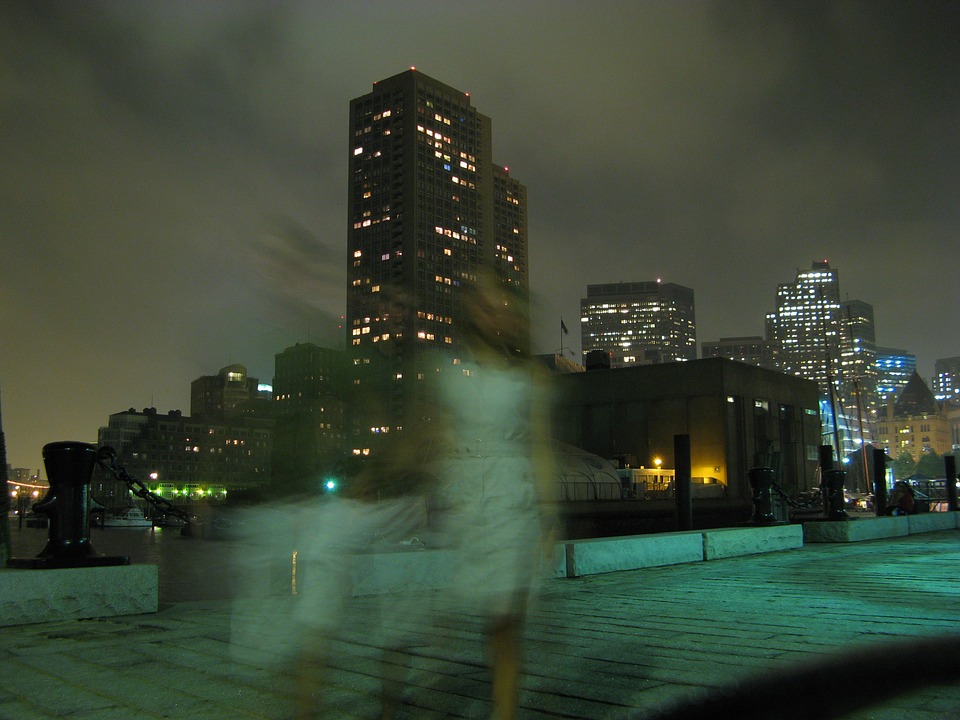
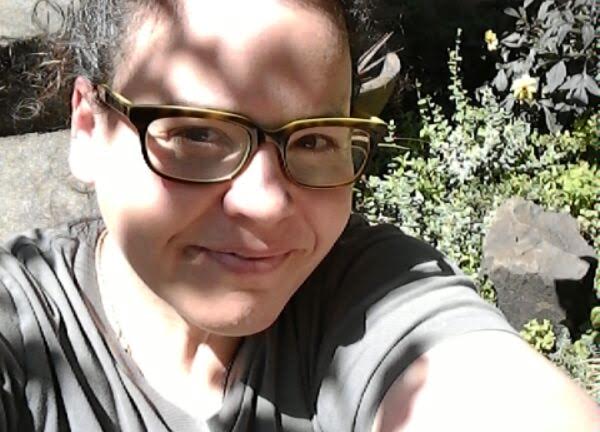
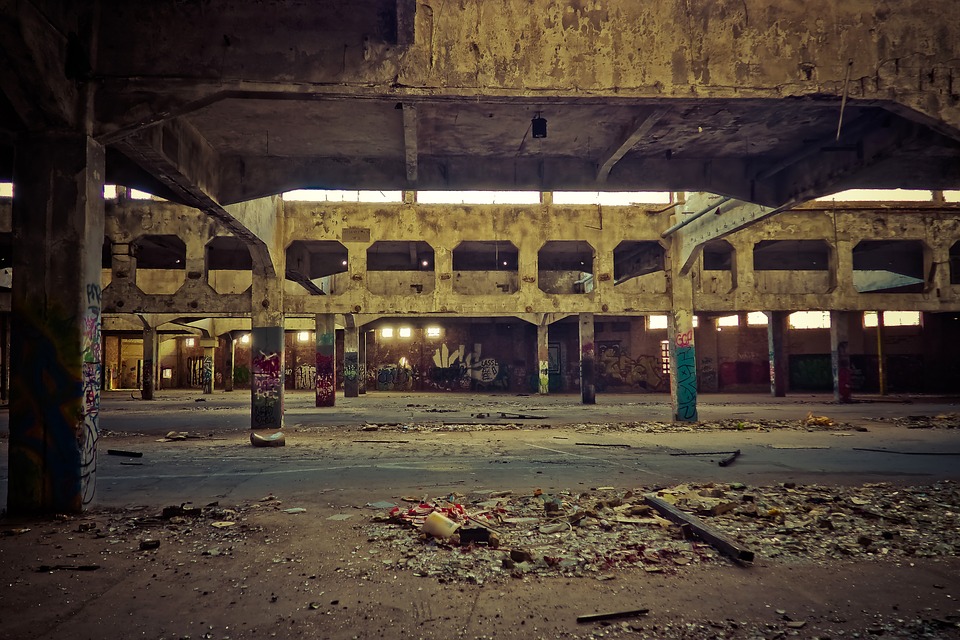
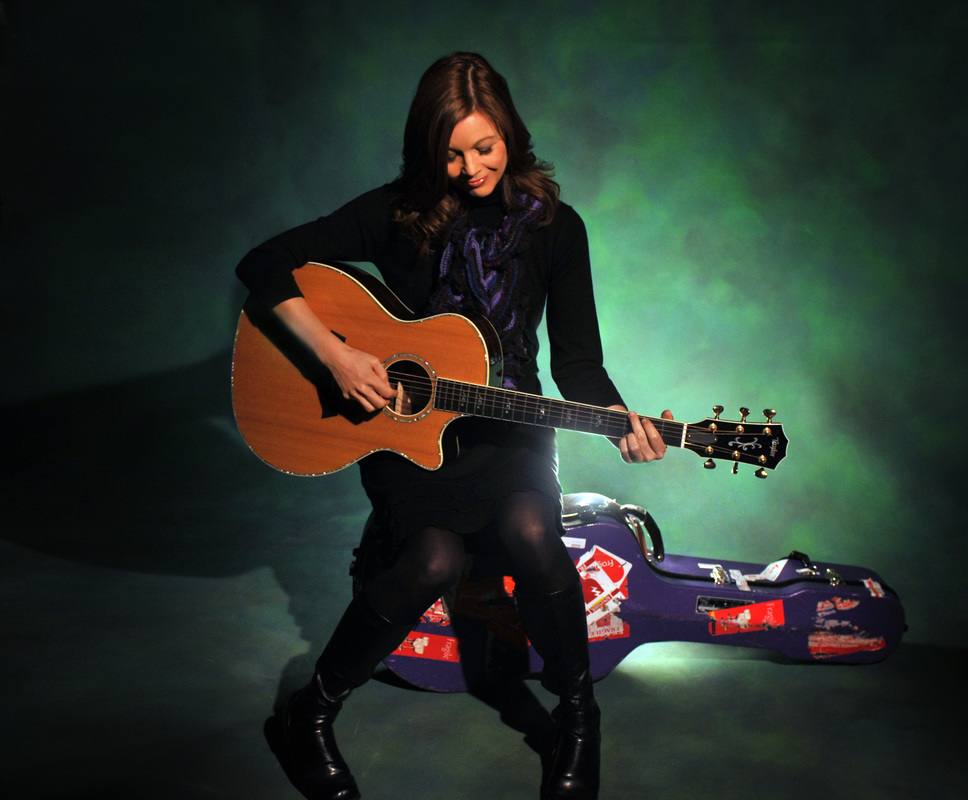
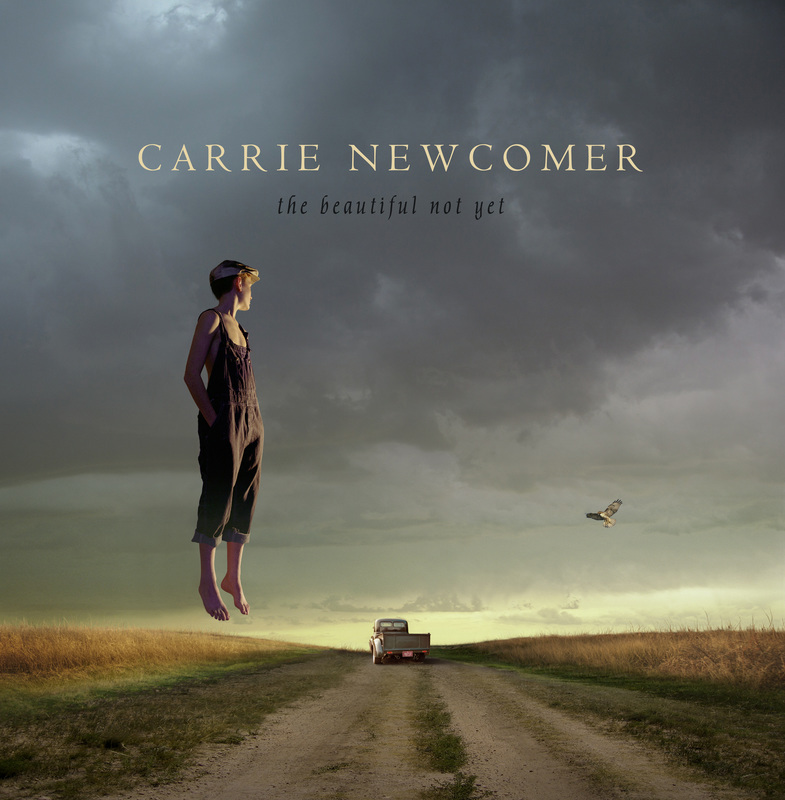
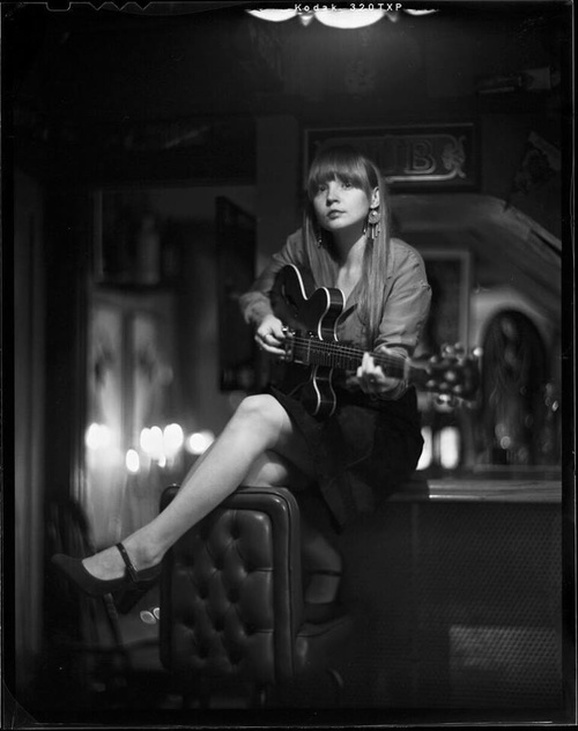

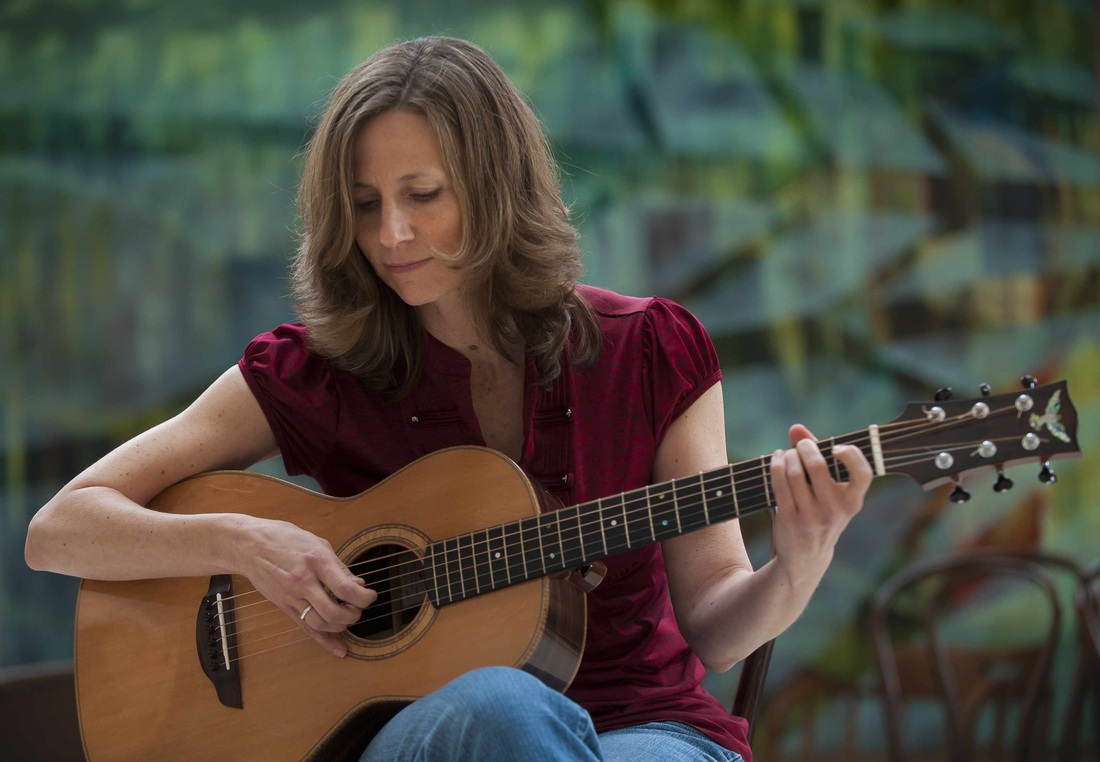
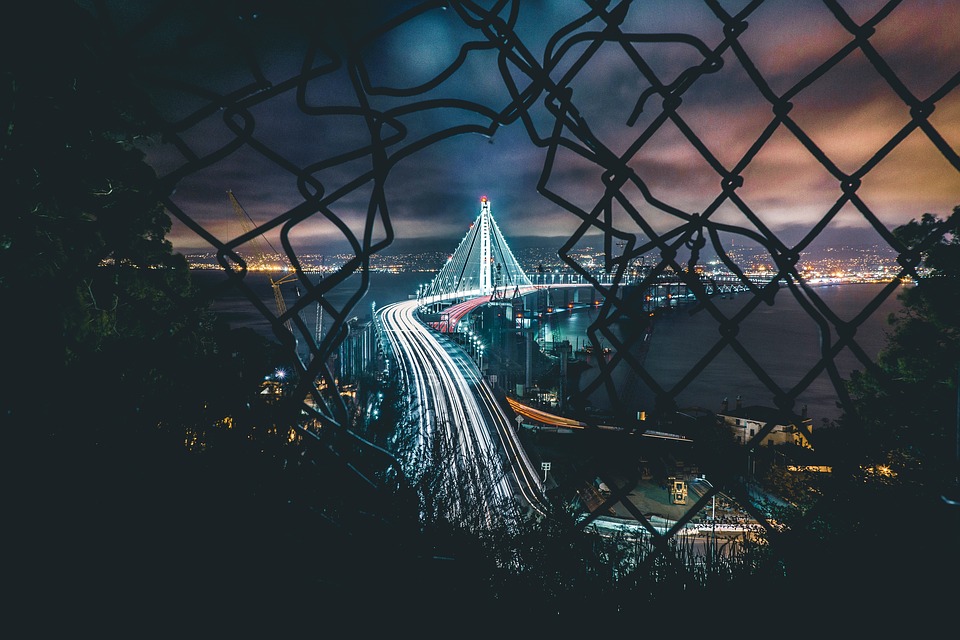

 RSS Feed
RSS Feed
